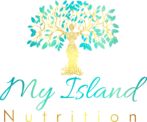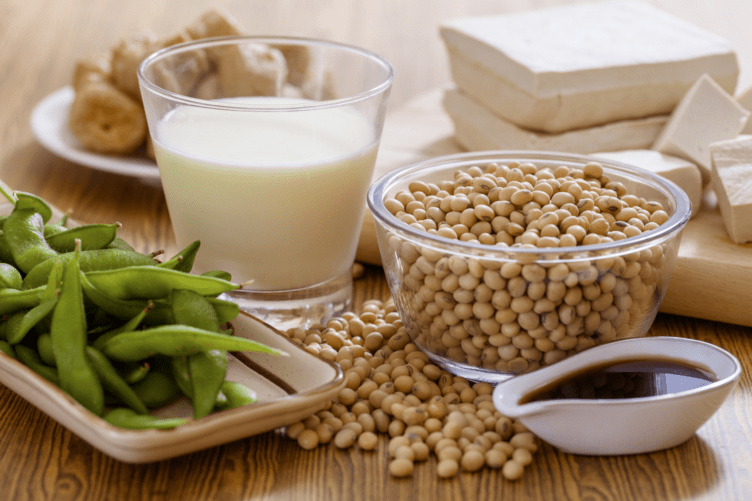The seesaw popularity contest over soy and itself has constantly been an ongoing debate among foodie skeptics. Is soy good for me? Will it increase my risk for chronic diseases like cancer? American consumers may burden themselves with these questions while at the supermarket or at home. However, the doubt over whether soy is the superman or kryptonite to your health is taking a step back to the nearly 2,000 papers published annually. Several epidemiological studies have argued that the daily consumption of soy is associated with a lower incidence of chronic diseases including cardiovascular disease, type two diabetes, breast and prostate cancer as well as even reducing menopausal symptoms.
These past epidemiological studies have observed soy consumption in Asian populations where it is historically the highest. On average, these populations have about one to two servings of soy per day. Unbeknownst to many, soy was first studied for its role in keeping disease in the clear. Compared to the United States, Asia continued to demonstrate a lower incidence of cancer and researchers wanted to know why. They believed and still believe that the isoflavones in soy play a role in the suppression of tumor growth. These unique compounds are essentially identical to a very essential circulating hormone found in our body, estrogen. Hence, an isoflavone may also be referred to as a phytoestrogen. When this compound passes through our digestive barriers unscathed and enters circulation, scientists believes that it interacts with human estrogen and as a result, decreases the development of cancers. However, limited studies have suggested that a daily intake of soy may actually heighten one’s risk for breast cancer by actually promoting tumor growth.
Previous in-vitro studies looking at mice found genistein, one of the primary isoflavones in soy increased the growth of estrogen receptor-positive in breast cancers leading to growth. Advancements in future studies have managed to determine that mice process the phytoestrogens such as genistein differently than humans. There is still concern though that remains among some individuals, especially those at risk or who have been diagnosed with breast cancer.
One study recently published on March 6th of this year in Cancer looked at more than 6,000 American and Canadian women with breast cancer and found that post-diagnosis consumption of foods containing soy’s main sidekick, isoflavones is associated with a 21% decrease risk of death. This decrease was only observed in women with hormone receptor-negative tumors as well as those who were not treated with endocrine therapy. A meta-analysis that included close to 10,000 breast cancer patients also found a positive correlation between consuming at least 10 mg of dietary isoflavones and a 25% reduced risk of breast cancer reoccurrence. The researchers believe that the consumption of isoflavones in their dietary form may even contribute to longevity.
It appears nutrition professionals such as dietitians have a responsibility to try to resolve the ongoing debate about the effects of soy consumption. Any clients who are willing to reduce their intake of red and processed meat may consider using soy foods as a better substitute. After all, soybeans are a great protein source. They are also the only legumes that contain high amounts of omega-3 fatty acids. Many foods already contain soy ingredients. For years now, many countries including the United States recognize soy’s ability to lower cholesterol and have provided health claims to support their growing consensus. The benefits of soy remain clear and continue to surprise researchers. It may be worth incorporating soy onto your plate in the future.
References
Hooper, L., Kroon, P. A., Rimm, E. B., Cohn, J. S., Harvey, I., Le Cornu, K. A., … Cassidy, A. (2008). Flavonoids, flavonoid-rich foods, and cardiovascular risk: a meta-analysis of randomized controlled trials. The American Journal of Clinical Nutrition, 88(1), 38–50.
Messina, M., & Messina, V. (2010). The Role of Soy in Vegetarian Diets. Nutrients, 2(8), 855–888. https://doi.org/10.3390/nu2080855
Nechuta, S. J., Caan, B. J., Chen, W. Y., Lu, W., Chen, Z., Kwan, M. L., … Shu, X. O. (2012). Soy food intake after diagnosis of breast cancer and survival: an in-depth analysis of combined evidence from cohort studies of US and Chinese women. The American Journal of Clinical Nutrition, 96(1), 123–132. https://doi.org/10.3945/ajcn.112.035972
Soyfoods & Cancer. (n.d.). Retrieved June 15, 2017, from http://www.todaysdietitian.com/newarchives/040113p30.shtml
Zhang, F. F., Haslam, D. E., Terry, M. B., Knight, J. A., Andrulis, I. L., Daly, M. B., … John, E. M. (2017). Dietary isoflavone intake and all-cause mortality in breast cancer survivors: The Breast Cancer Family Registry. Cancer, 123(11), 2070–2079. https://doi.org/10.1002/cncr.30615

